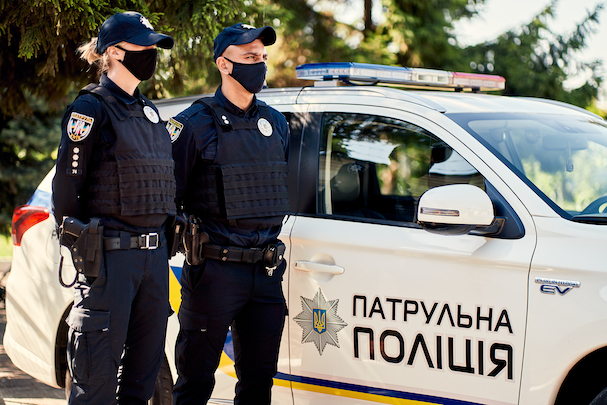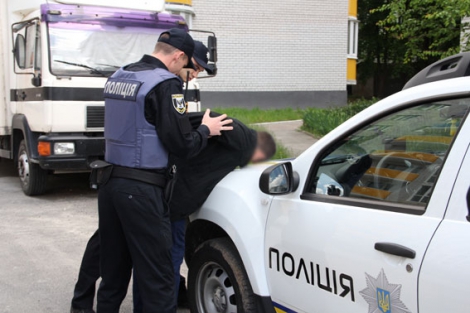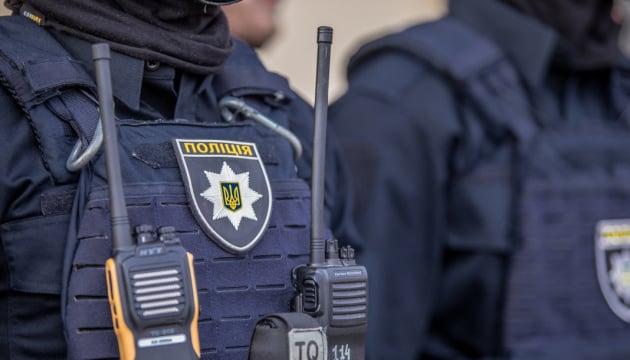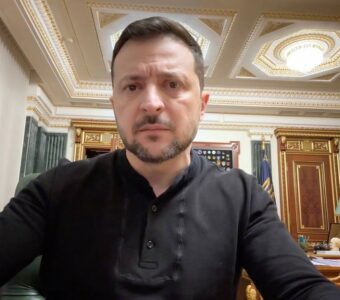Police officer abuses authority: what to do
How to behave correctly during a perfunctory inspection and how to record violation of rights by the police

There is graffiti on the Kyiv Embankment: a huge inscription, more than 10 meters in length, which anyone can see even from the other bank of the Dnieper. It reads: "WHO TO CALL IF POLICE KILLS?" This inscription appeared several years ago, it's regularly painted over, but it was restored in June for the seventh time. So the walls of the Embankment say something that cannot be shouted about in the streets, and a 6-word phrase, if you think about it, is worse than it seems at first glance.
According to the political analyst of the Democratic Initiatives Foundation Petro Burkovskyi, during the pandemic year, mistrust of the National Police and the Security Service of Ukraine increased from 25% to 31%.
In May of this year, the "Stop Police Safari in Podil" demonstration was held, another marker signaling that unhealthy things are happening in Kyiv: illegal raids in venues, searches, unjustified police violence, the use of force, and planting drugs. It was against this that the rally supporters were opposed to.
And more recently in Kyiv, a patrolman knocked the phone out of the hands of a woman who called a patrol after hearing screams in an apartment on the floor below. The police officer who arrived at the address advised the responsible citizen "not to interfere," to which the woman asked him to introduce himself, called another patrol, which ended in inappropriate behavior of the police officer.
Just the other day, there was another incident. The police brutally violated the procedure for a perfunctory inspection, although they behaved "with restraint," according to the creator of the telegram channel, which published the video of that evening.
Article 365 of the Criminal Code of Ukraine provides for punishment for law enforcement officers whose actions go beyond their authority with up to 5 years of imprisonment. If these actions are accompanied by violence or threats of violence, the use of weapons or other special means, it's up to 8 years, and the most severe sanction is imprisonment up to 10 years if such actions entailed grave consequences.
However, such actions can go unpunished; in an emergency, it can be difficult to navigate. As a result, there's no evidence of a violation, which means that there can be no talk of justice and compensation.
In what cases can the police detain?
If a police officer stops you, he must tell you the reason. The reasons for this may be:
- suppression and prevention of administrative offenses, but only if other measures of interaction cannot be sufficient;
- to execute the relevant ruling with an administrative offense;
- to exclude the possibility of counteracting the consideration of cases.
The police also have the right to demand identity documents and/or documents confirming the corresponding right of the person (driver's license from the person who drives the vehicle), in the cases specified in Article 32 on the National Police:
- if the person has external features similar to external features of a wanted person or a missing person;
- if there are sufficient grounds to believe that the person has committed or intends to commit an offense;
- if the person is in the territory or facility with a special mode or the place of special police control;
- if a person has weapons, ammunition, drugs, and other things, when their circulation is restricted or prohibited, or when a permit is required for their storage, use, or transportation, if it is not possible to establish such rights in any other way;
- if the person is in the place of committing an offense or road accident, and another emergency;
- if the external signs of the person or vehicle or the person's actions give sufficient grounds to believe that the person was involved in the commission of an offense, the vehicle may be an instrument or object of the offense.
If you commit an administrative violation, such as hooliganism, the police can draw up a detention report onsite.
When can the police use force?
Using physical force, special means or weapons is possible only if the police officer cannot stop the offense in other ways. But in this case, he must follow the procedure specified in Art. 43 of Law of Ukraine "On the National Police". It means that:
- A police officer is obliged to warn a person about the use of physical force, special means, and firearms and provide them with sufficient time to fulfill a legal requirement, unless the delay may entail an infringement on the life and health of a person or and/or a police officer or other grave consequences or situation that has developed, such a warning is unjustified or impossible.
- A warning can be made by voice, and at a considerable distance, or addressing a large group of people through loudspeakers, and sound amplifiers.
- The type and intensity of using enforcement actions are determined considering the specific situation, the nature of the offense, and the individual characteristics of the person who committed the offense.
- Police officers are required to provide emergency medical assistance to persons who have suffered as a result of the use of enforcement actions.
- It's forbidden to use physical force, special means, and firearms against women with obvious signs of pregnancy, minors, persons with obvious signs of disabilities or old age, except in cases of armed or group attack, armed resistance to a police officer, which threatens the life and health of other persons or the police, if it's impossible to repel such an attack or resistance by other means.
In any other case, the use of physical force is prohibited and considered illegal.
Perfunctory inspection: what the police cannot do
Police officers may not search you, but they are allowed to conduct a perfunctory inspection. It is applied to a person regarding whom there's information about the commission of an administrative offense, or a detainee for its commission (Article 264 of the Code of Ukraine on Administrative Offenses).
At a perfunctory inspection, police officers have no right to search into a pocket, a bag, or a hood; they may only ask you to open the bag, look inside the backpack. The maximum that a police officer is allowed with a perfunctory inspection is to tap his hands over your clothes. A person of your gender can only do this (a woman searches a woman, a man searches a man).
Body searches must be carried out in the presence of attesting witnesses at the police station during the arrest. In this case, a detention report must be drawn up. Be sure to pay attention to what you sign. If the police officers didn't record or wrote something extra, then indicate it with your own hand in the protocol.
If a police officer independently removes weapons or drugs from your bag/pocket, such evidence will not be accepted in court, since the perfunctory inspection procedure was violated. Such violations must be recorded immediately, and below we'll tell you how to do this.
How to behave?
- You shouldn't resist the police. For failure to comply with the legal requirements of a police officer and disobedience, administrative liability is provided in the form of a fine in the amount of 136 to 255 hryvnia or community service for forty to sixty hours, or corrective labor for one to two months with deduction of twenty percent of earnings. If the resistance is particularly aggressive, you may face arrest for up to 15 days. In addition, intended bodily harm on a police officer during detention is punishable by restriction of liberty for a term of up to five years or imprisonment for the same term. Therefore, you shouldn't put up obvious resistance.
- Keep your distance and ask a police officer.
- Turn on your video recorder. There's no law prohibiting photography/filming. In the video, ask the police officer to introduce himself again: give the name, surname, position, rank, and state the reason for the detention. You can also ask someone you know to film the scene.
- Rewrite the badge number and information from the police officer's ID card.
What if your rights have been violated?
- If the police overstep their authority, unreasonably use physical force, don't want to introduce themselves, don't allow filming, call 102. A patrol police response team should be sent to you. In the city, the patrol will arrive within 10 minutes, in the countryside, it's no more than 40 minutes. The patrol officers find out the circumstances of the offense, accept the statement of the offense and, if necessary, can call the investigative and operational group.
- At the same time, if physical force was applied to you, you need to call an ambulance, 103. Doctors must record the injuries inflicted, give you conclusions. Take photos of the damage received.
- If the police didn't come to the call, you can file a complaint about the police inaction. To do this, apply to the General Directorate of National Police under the example form below; you can call 102 or 0-800-50-02-02 again. The complaint should be considered within a month.

- You can also apply to the district police department and the prosecutor's office. Such statements can be sent by email. Attach any evidence you have gathered with each statement.
- Information about your application must be entered into the Unified Register of Pre-trial Investigations within 24 hours from the moment of filing if an offense has taken place. You will have to find out on your own whether the proceedings have been started: often, in case of non-serious crimes, the police are in no hurry to open proceedings and, accordingly, notify the applicant about it. The investigator must provide you with an extract from the register. Thus, you can further monitor the progress of the case, know the registration number and those responsible.
- If they refuse to accept the application, don't register it, don't enter the data on the application in the Unified Register of Pre-trial Investigations, you must write a new application to a higher authority for each such action.
- Publicity will help you. This is a well-established practice in Ukraine, therefore, evidence and circumstances of the case collected and published in the public field may also have an impact on the consideration of your case.

























































